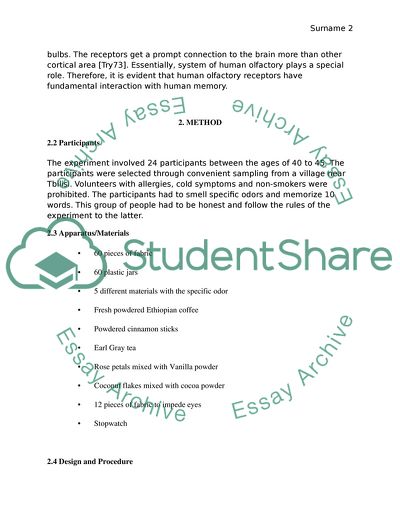Cite this document
(Effects of olfactory stimulation on short-term memory Lab Report, n.d.)
Effects of olfactory stimulation on short-term memory Lab Report. https://studentshare.org/psychology/1846982-effects-of-olfactory-stimulation-on-short-term-memory
Effects of olfactory stimulation on short-term memory Lab Report. https://studentshare.org/psychology/1846982-effects-of-olfactory-stimulation-on-short-term-memory
(Effects of Olfactory Stimulation on Short-Term Memory Lab Report)
Effects of Olfactory Stimulation on Short-Term Memory Lab Report. https://studentshare.org/psychology/1846982-effects-of-olfactory-stimulation-on-short-term-memory.
Effects of Olfactory Stimulation on Short-Term Memory Lab Report. https://studentshare.org/psychology/1846982-effects-of-olfactory-stimulation-on-short-term-memory.
“Effects of Olfactory Stimulation on Short-Term Memory Lab Report”. https://studentshare.org/psychology/1846982-effects-of-olfactory-stimulation-on-short-term-memory.


